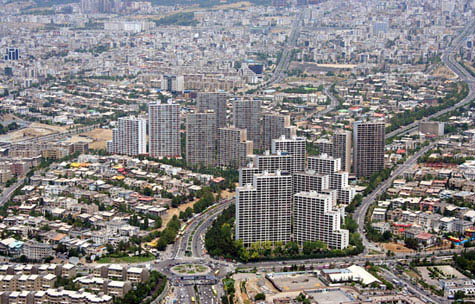Azerbaijan, Baku, July 24 / Trend T. Konyayeva /
The growth of direct foreign investments in Iran is nothing more than part of the questionable data provided by Tehran, some experts said. Others believed that it is the result of violating of sanctions by some companies.
Thus, the $3.16 billion foreign direct investment reported by UNCTAD is what the Iranian government has reported, Professor in the Department of Economics at Northeastern University, Kamran Dadkhah, told Trend via e-mail.
Unfortunately, the Iranian government has damaged its own credibility by not reporting some data or by floating dubious reports about the economy, Dadkhah said.
The head of the Organization for Investment, Economic and Technical Assistance of Iran Behrouz Alishiri during the debates over tha last UNCTAD report on foreign direct investment into the economy of various countries said that according to the report, direct foreign investment in Iran's economy increased by 86 percent.
The volume of direct foreign investment in Iran's economy in 2008 amounted to $1,615 million, and in 2009, that figure reached $ 3 billion.
Data published by international organizations such as the IMF, the United Nations, and the World Bank are entirely based on what member countries report, Dadkhah said.
Of course sometimes the organization makes certain adjustment to make data from different countries compatible, he said.
"In the past the Iranian government has reported billions of dollars investment when in fact only certain agreements have been reached or signed," he said
When we speak of foreign direct investment we should mean actual capital formation in Iran paid by foreign investors, he said.
"But the Iranian government data has not always reflected this," he said.
According to the data published by the Iranian government the following countries have been the major sources of foreign investment in Iran during the period 1993-2007: the United Arab Emirates, Canada, Singapore, Mauritius, Germany, Spain, and the Netherlands.
Given the sanctions, it is unlikely that these countries made any significant investment in Iran during 2009.
"Iran's only trade and investment partner capable of such investment is China. One may surmise that Turkey, India, and perhaps some European countries each have made some small investment," he said.
But even if we take the figure at face value, we should note that $3 billion is less than one percent of Iran's GDP in 2009.
"It is a pity that a country with so many resources and so much potential could only attract such a paltry amount of foreign investment," he said.
"First, economic sanctions against any country have a long and consistent historical record of leaking badly," U.S expert, Defense and Foreign Policy Studies, Cato Institute, vice-president, Ted Galen Carpenter, said.
Governments and companies may formally pledge to isolate a country economically, but when there is a significant profit potential at stake, they will often find ways to evade or violate those commitments, he said.
The UN Security Council adopted another resolution, which provides for tougher sanctions against Tehran in connection with its refusal to cease its uranium enrichment June 9, 2010. This is the fourth resolution, adopted by the Security Council because of Tehran's unwillingness to comply with international requirements concerning the clarification of several issues of the world community over the Iranian nuclear program, including the existence of the military component.
A new document of the Security Council provides for new restrictions against Iranian banks abroad, if there is suspicion that they are relevant to the development of Iran's nuclear or missile programs as well as against the insurance system, besides inspections on Iranian ships and shipping restrictions on the country.
I suspect that is what is happening regarding Iran. The profits that can be made through economic interaction with Iran outweigh the political and diplomatic pressures to make that country an international pariah, he said.
"That is why the newest round of sanctions will likely prove no more effective than previous rounds," he said.
Iranian expert Jamshid Pejuan agrees that some companies are ready to violate the sanctions regime for profit.
"Mainly. foreign companies invest in Iran's oil and gas sector, affected by sanctions, the investments in other sectors are feasible, the Iranian council for cooperation chairman and the Organization for Planning Scientific Council member Pejuan said over phone from Tehran. The companies and enterprises have own benefit. They try to continue its activity and receive the corresponding profit despite the sanctions.
The U.S. imposed its unilateral restrictive measures against the Islamic Republic along with the UN sanctions, which mainly affect the oil and gas sectors of Iran and Iranian companies suspected by U.S. authorities of involvement in the development of missile programs.
The French oil and gas group Total became the latest Western company, which halted deliveries of oil products, particularly petrol, to Iran after the United States imposed unilateral sanctions against that country. Previously, the Anglo-Dutch concern Royal Dutch Shell PLC and Malaysia's state-owned Petroliam Nasional Bhd (Petronas) ceased their trade transactions with Iran.
T. Jafarov contributed to the article.






